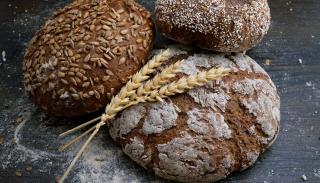
Breadcrumbs navigation
Review of International Studies Best Article Prize in discussion: Topological twists in the Syrian conflict
Last week we announced José Ciro Martínez as the winner of the Review of International Studies Best Article Prize for ‘Topological twists in the Syrian conflict: Re-thinking space through bread’ (Vol 46, no. 1). Here José discusses the article, what led up to it and where his research will take him next, with Review of International Studies (RIS) editor Martin Coward.
The RIS Best Article Prize is awarded annually by the editorial advisory board of our journal . It’s awarded for the best article published in the previous year's volume of the journal. José's article seeks to question the epistemological monopoly of territory and scale in analyses of the Syrian conflict.
The judging panel said of the winning article:
“Martínez demonstrates the explanatory richness of treating spatial categories as produced by interactions and practices rather than as given by our usual static assumptions about flat territory and centers of power. By introducing insights from critical human geography, Martínez opens promising avenues for future research. His article is an intellectually ambitious, theoretically innovative, and empirically rigorous piece of research that deserves a wide readership across the discipline.”
Cambridge University Press has agreed to make ’Topological twists in the Syrian conflict: Re-thinking space through bread’ free to access for a whole year so please do click through to read it.
DOI: https://doi.org/10.1017/S0260210519000330
Abstract
This article seeks to question the epistemological monopoly of territory and scale in analyses of the Syrian conflict. It does so to both challenge static conceptualisations of space in the study of politics and analyse how seemingly remote actors influence wartime outcomes. Since 2011, NGOs, government bodies, and merchants have worked to connect Damascus to Tehran, Idlib to Istanbul, London to Dara‘a. These connections have proven crucial to the reliable supply of food, funds, and firepower. Yet rather than reveal the importance of foreign patrons or proxies on the ground, such dynamics speak to a world in which relationships matter more than distance, practices more than geopolitical position or a priori forms of alliance. Drawing on the work of John Allen, I suggest why thinking topologically about these dynamics better equips us to understand the political outcomes they help engender. To demonstrate the promise of this approach, I hone in on the partnerships, intermediaries, and connections that shape performances of political authority in Syria by examining one object crucial to its enactment: bread.
Photo by Wesual Click on Unsplash


